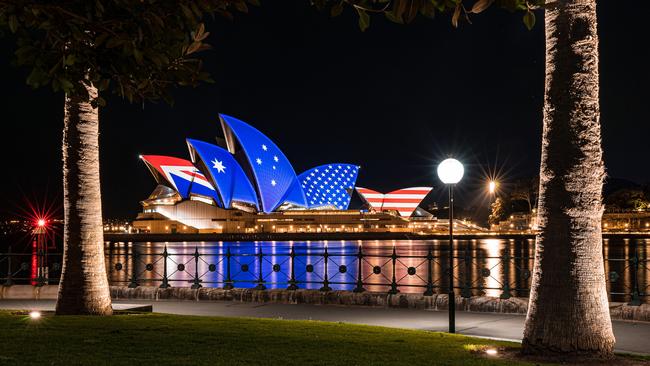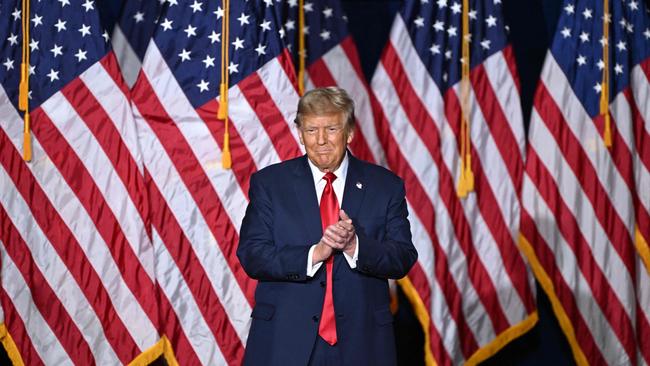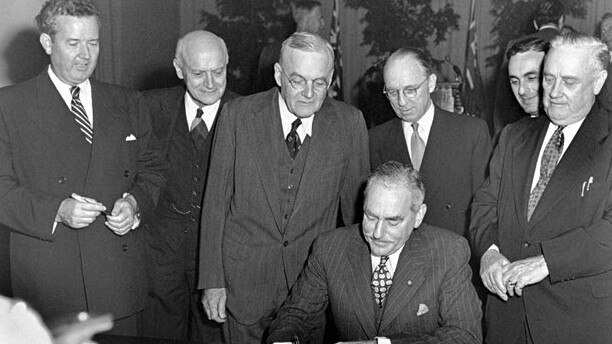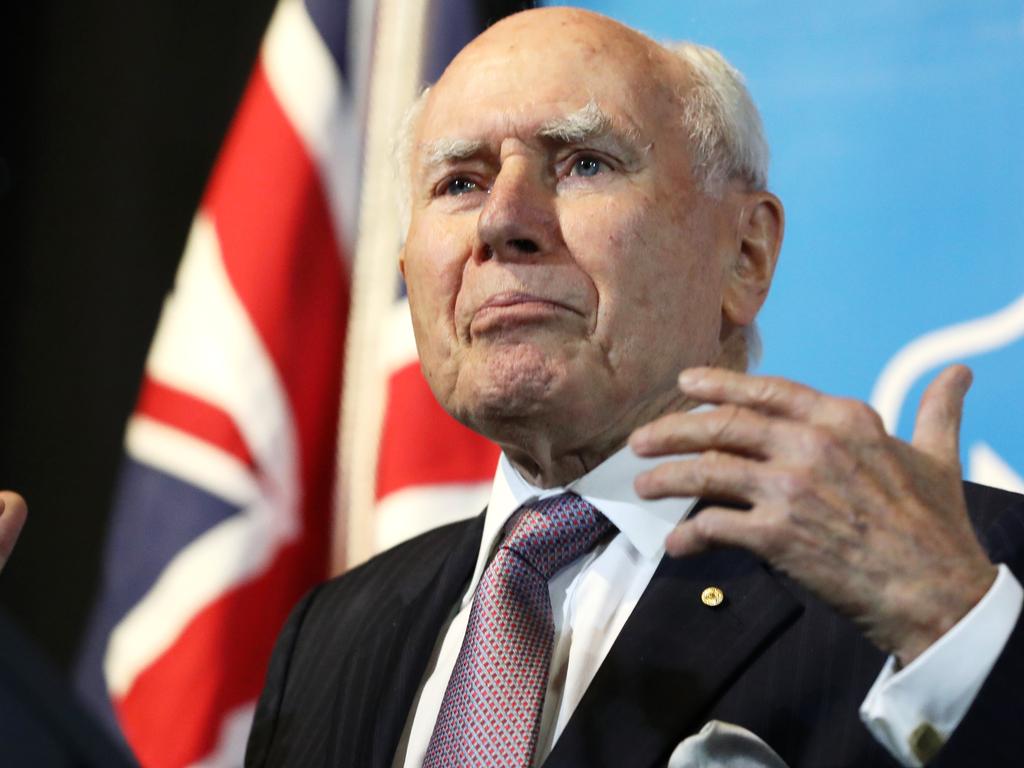
While Trump’s poll lead over Joe Biden in battleground states may not last, his return to the US presidency cannot be ruled out, and it has officials deeply concerned about what it would mean for the bilateral relationship.
Trump’s single presidential term was a disaster for the US but also for traditional alliance partners and the standing of the great republic around the world. Trump did not and does not have a coherent foreign policy, was irrational and unpredictable, prone to snap judgments and policy reversals.
The future of the trilateral nuclear defence pact, AUKUS, is far from guaranteed despite what officials say. This is a Biden administration policy developed in partnership with Australia and the UK. Trump had no role in it and therefore has no fidelity to it. Some congressional Republicans remain lukewarm at best.
It is not certain Trump would stick with a US promise to sell to Australia Virginia-class nuclear-powered submarines, share technology and personnel, and design and construct a new submarine for Australia. While the US congress passed enabling provisions for AUKUS, Trump could seek to terminate the deal.
Australian diplomats are working overtime to develop relationships with congressional Republicans and those close to Trump in the hope they can influence his thinking. In reality, Republicans in congress and those in the MAGA wing matter little as they take their cues from Trump, not the other way round.
The Albanese government is worried not only about AUKUS but the future of ANZUS. With his “America First” mantra, Trump showed no respect for longstanding alliances. He withdrew from the Paris climate accords and the Trans-Pacific Partnership, cosied up to dictators and autocrats, and weakened US prestige around the world.
If he returns to power, Trump wants to end US support for NATO, which requires congressional backing. He told EU officials the US would never defend NATO countries if under attack. MAGA Republicans want to end US military support for Ukraine, while Trump says he would force Volodymyr Zelensky to “make a deal” with Vladimir Putin’s Russia. This means ceding Ukrainian territory to Russia.
In our region, longstanding defence partners South Korea and Japan are also reportedly concerned about a Trump presidency, given he has questioned continued US security and defence guarantees. Trump repeatedly praises Xi Jinping and, unlike Biden, has publicly doubted whether he would defend Taiwan if China sought to reclaim it by force.

In his first term, Trump wanted to impose tariffs on Australian exports and refused to honour a refugee deal reached with Barack Obama. Some clever diplomatic work by Malcolm Turnbull and ambassador Joe Hockey changed his mind. But there is unlikely to be any carve-outs for Australia next time because Trump is friends with Greg Norman.
For more than three decades, Australia has been a leader in the push for freer trade, which provides greater market access for our products and encourages business to be more innovative, efficient and competitive. Trump has pledged to introduce a new 10 per cent tariff on imports from every country. He has also promised to terminate the Indo-Pacific Economic Framework.
Trump is notoriously thin-skinned about criticism. He takes insults personally and seeks revenge. Just look at the obsequiousness of those who challenged him for the Republican presidential nomination – Ron DeSantis, Vivek Ramaswamy, Doug Burgum and Tim Scott – and lashed him during the primary contest but now lavish him with praise. If they did not, he would destroy their political careers given his support in the party.
This is a problem for Anthony Albanese, Defence Minister Richard Marles, Foreign Minister Penny Wong and ambassador Kevin Rudd. Each of them held Trump responsible for the riot at the US Capitol on January 6, 2021. Albanese said Trump “encouraged” the “violent insurrection”, which was “an assault on the rule of law and democracy”. He urged Scott Morrison to “call out” Trump’s “anti-democratic actions”.
Wong agreed, blaming Trump for the “violent insurrection”, and demanded Morrison condemn the then president’s actions. Marles earlier argued that “Australia should not be afraid to criticise Donald Trump when his unpredictability harms the national interest”.
Rudd has unleashed a fury of attacks on Trump, accusing him of “corruption”, instigating riots and attacking institutions, and labelling him “a traitor to the West”.

This does not augur well for a Trump election victory in November. You can guarantee Trump would not like to be reminded of those comments and they will influence his approach to Australia.
A Trump presidency furthermore represents a grave threat to US democracy. He faces four criminal trials and 91 indictments. There is no doubt he tried to overturn an election and should be held accountable for that. If re-elected, he said he would be “a dictator”, suspend the constitution, execute generals, weaponise the Justice Department to go after opponents, and pardon convicted criminals who caused death and destruction at the Capitol.
The notion that an Australian prime minister and their ministers would just stand idly by while Trump seeks to turn the republic into an autocracy, trampling the constitution, defying the law and shattering norms and conventions, while maintaining the normal alliance relationship is preposterous. What would it say about Australia if we turned a blind eye?
Even though I regard a Trump victory over Biden as unlikely, it cannot be ruled out. It makes sense for Australian government officials to prepare for this worst-case scenario.
A Trump return to the White House would be the biggest challenge facing the Albanese government and the future for the Australia-US relationship will be, at best, uncertain.








Australian ministers, public servants and diplomats are quietly assessing the implications of a Donald Trump presidential election victory in November.